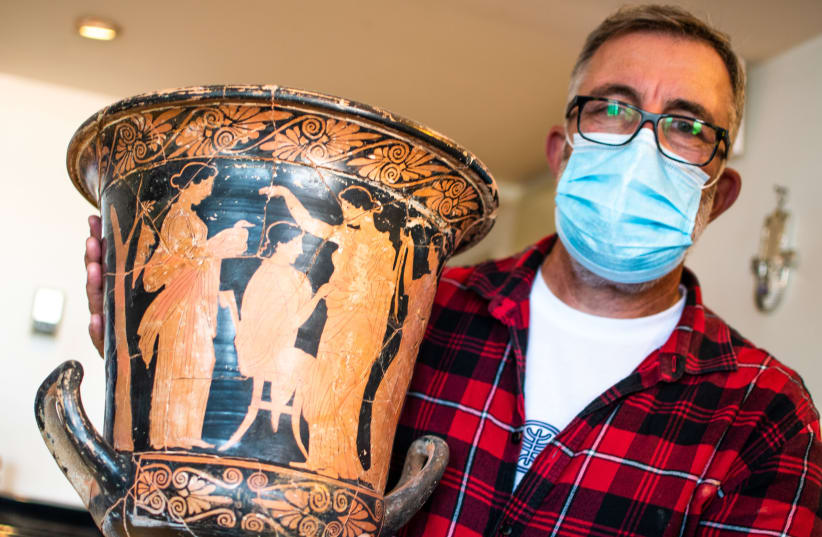An international trio of grave robbers who stole and traded in precious artifacts from around the world was thwarted on Monday when police raided a Tel Aviv flat.
The officers on the scene discovered ceramic pottery, coins, jewels and protomas of Roman deities valued at roughly tens of millions of shekels.
The criminal ring comprised three men, two residents of Tel Aviv in their 60s and one resident of Holon in his 40s.
The stolen items originated from the Middle East, South America and several African countries.
The men are suspected of fraud and money laundering in addition to illegally selling archaeological items.
The joint inquiry by police officers, the Tax Authority, and the Antiquities Authority (IAA) went on for several months, with the Monday bust being the result.
“This is one of the most significant operations undertaken in [the history of] the country to fight the unlawful trade in artifacts,” Head of the Anti-Theft Unit at the IAA Amir Ganor said.
Ganor said the recovered items are “museum quality” and include black-figure style and red-figure style Greek pottery, the first used 700 years before the time of Jesus and the second developed in Athens two centuries later.
He said many of the artistic objects were left in tombs as offerings to the dead and were meant to serve the departed in the life beyond.
Ganor stressed that the items were not all from Israel, making this an international investigation that will put his unit in touch with Interpol to figure out what were the original sites from where the items were stolen.
“Every time an archaeological finding is severed from its context by robbers and sold for cold cash, a black hole in history is formed,” he said, “we are working [and] using all means to prevent that.”
